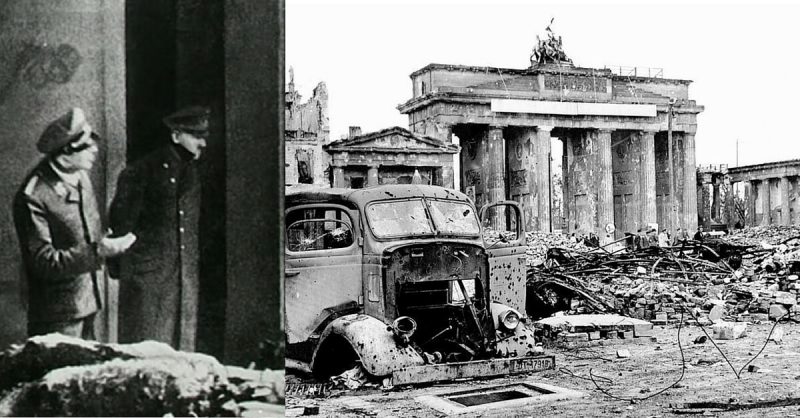Adolf Hitler, a man who swept the Germans up to incredible victories, was also the main reason Germany ultimately lost the war. He refused to accept reality, took no advice from his Generals and then made poor decisions. This way he ensured a relatively quick end of Nazi Germany.
Here follow ten other reasons why he lost the war.
His Allies in the Axis of Evil
Having no luck in enticing England to join in the fight against the USSR Hitler had to look for other, less powerful countries.
Italy was a natural choice, having an ideology similar to the Nazis, but when WWII started their military equipment was already outdated.
Other countries like Romania and Hungary were enticed into the Axis, but neither could provide high-quality military assistance. In the case of Italy, Hitler had to bail out his ally who started more than one ill-fated attack.
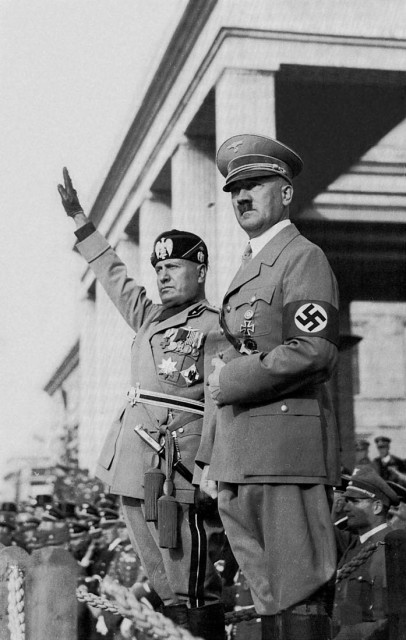
The Not One Step Back policy
Hitler saved the German army from catastrophic defeat in the winter of 1941 – 1942 when he ordered his troops to stand and fight against the Russian counter attacks after their failed operation to capture Moscow. At that point, a decision to withdraw could well have caused a total collapse of the German front and an early defeat in Russia.
After this, feeling vindicated, he took this policy too far and allowed not a single unit to withdraw. He went so far as to give orders down to regimental and even company level, bypassing normal military channels.
His decision to deny the German 6th Army at Stalingrad to withdraw caused its complete destruction. In later battles, he denied the army to pull out to more favorable terrain or to shorten the lines. This caused the German Army countless casualties that it could ill afford.
The right technology used incorrectly
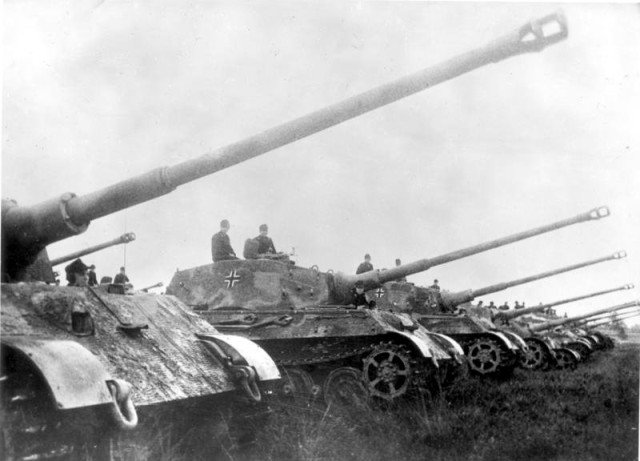
The Germans were well in advance of the Allies when it came to Military Technology. Having vastly superior tanks and jet airplanes being mass produced and correctly employed should have given the Germans an edge in any battle.
However, the quest for ever heavier tanks instead of concentrating on the mass production of the good designs like the Panther tank left the Germans with a wide array of tanks, each requiring different spare parts and expertise.
Also, the reliance on forced labor meant that quality control was a big issue, causing more frequent breakdowns which required more spares, etc.
Declaring War on the USA
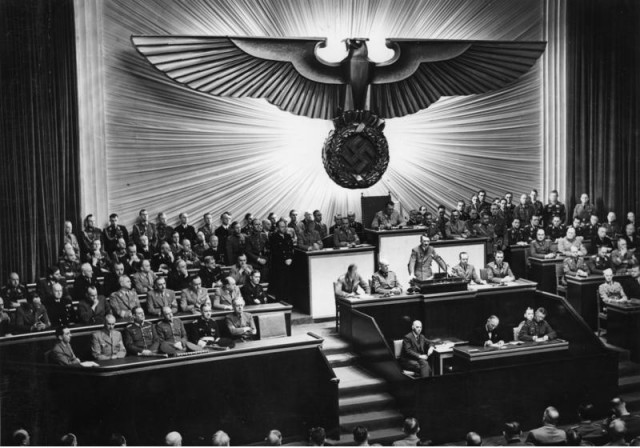
On December 11, 1941, Germany declared war on the United States, in response to what was claimed to be a series of provocations by the United States when they were still neutral. This occurred 4 days after December 7, 1941 when the Empire of Japan launched its surprise attack on Pearl Harbor.
According to the terms of the Anti-Comintern Pact signed with Japan, Germany was obligated to come to the aid of Japan if a third country attacked Japan, but not if Japan was the aggressor. Nevertheless, the German government (Hitler) chose to declare war on the United States.
This proved to be a godsend for both Churchill and Roosevelt who soon agreed on a Germany First strategy which meant the destruction of Germany took precedent over Japan.
Hitler taking over as Commander-in-Chief
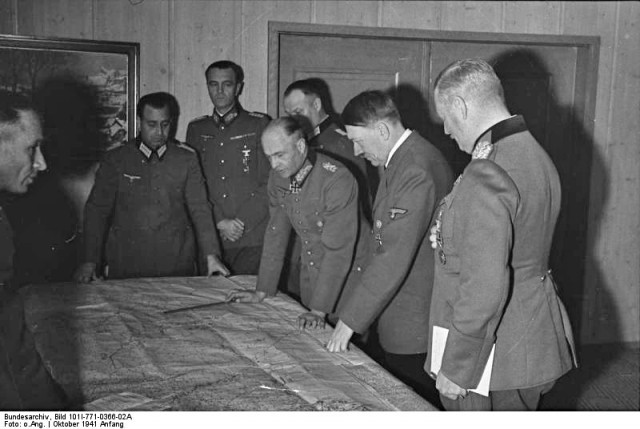
In December 1941 when the attack on Moscow stalled, the Soviets launched a massive counterattack which threatened to rout the Germans bringing them to the brink of disaster.
Hitler did not wish to accept the facts, and he began removing officers from their command for not obeying orders or when they proposed to withdraw.
What Hitler certainly did not believe in was to give back captured territory (see reason 9). Then, to the despair of the Army General Staff, he declared himself to be commander in chief of the Army.
This Army he would train “in a National Socialist way”, he would be the one that would set out the strategy and the officers would from now on listen to him.
Hitler did not listen to his Generals
Having won spectacular victories early in the war under his supervision, Hitler considered himself a military genius. However, when the tides of war changed, Hitler blamed his Generals for not carrying out his “brilliant” orders. Causing a downward spiral of mutual mistrust, in the end, Hitler only listened to himself (see reasons 9 and 6).
For instance, his plan to launch the Battle of the Bulge in December 1944, despite his Generals misgivings, caused Germany to lose valuable men and material making the job of the final defeat of Germany easier for the Allies.
The Russian Winter
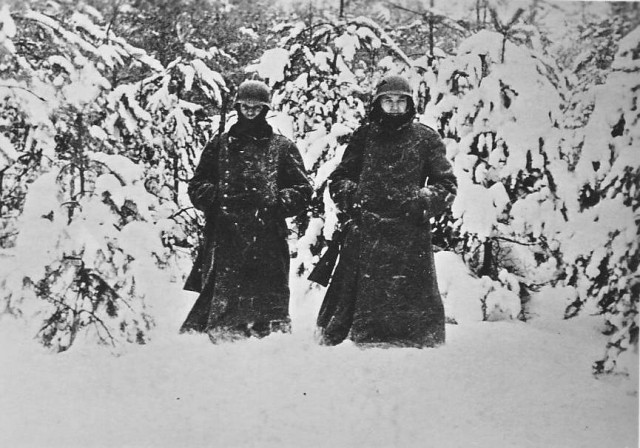
Hitler was certain of a quick victory over the USSR, saying to his Generals “We have only to kick in the door, and the whole rotten structure will come crashing down.” Since victory would be achieved before winter set in, there was no need to prepare for the Russian winter.
However, being unable to capture Moscow in the autumn of 1941 and force a Soviet surrender his troops had to face the full onslaught of arctic cold in their summer uniforms.
3. The attack on Greece
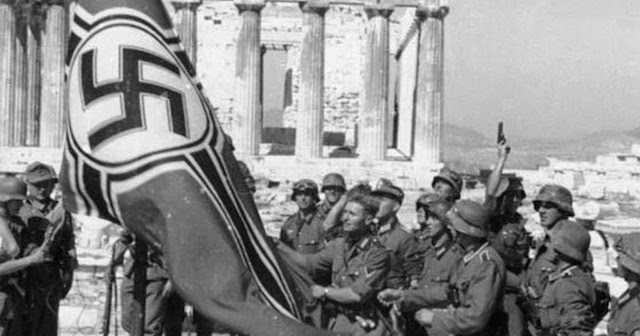
Fully aware of the urgency to launch the assault on the USSR right after the thaw ended and Russian roads became passable again, Germany ended up bailing out Italy (see reason 10) in their misadventure in Greece.
This military operation caused a 6-week delay of the attack on Russia. This delay meant that first the autumn rains and then winter arrived before Operation Barbarossa could be completed and the Russians destroyed.
2. Battle of Stalingrad
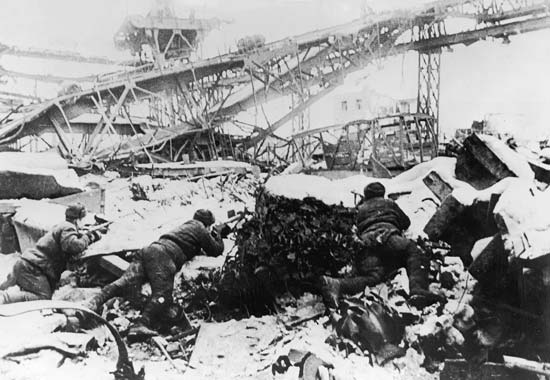
One of the costliest battles ever fought in a war, the Battle of Stalingrad became a turning point for the second world war. Driving for the oil fields in the Caucasus the German 6th Army could have bypassed or surround the city to take care of it later.
However, they were ordered to take the city itself and thus were forced to fight for every city block, house and room causing massive casualties.
Then the Soviets launched an offensive and surrounded Stalingrad, trapping the 6th Army in a vast pincer movement. Hitler refused to allow the 6th Army to break out towards friendly lines, making their destruction inevitable.
1. A two front war
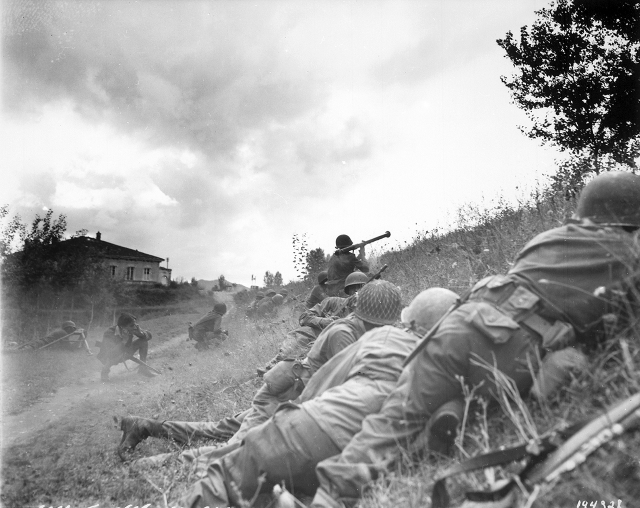
Hitler’s prime target had always been Russia but to secure Germany’s western flank and avoid a war on two fronts Germany decided to attack France and Britain first.
France was taken care off in a matter of weeks but after losing the Battle of Britain Hitler had only partially achieved a secured western flank.
Then he declared war on the USA (see reason 7) and now Germany was forced to fight Britain and the USA in North Africa, Italy and finally France.
Hitler was constantly dividing his forces between two fronts. Having to focus his strength everywhere meant he could not secure a decisive victory anywhere, ultimately invited defeat.
